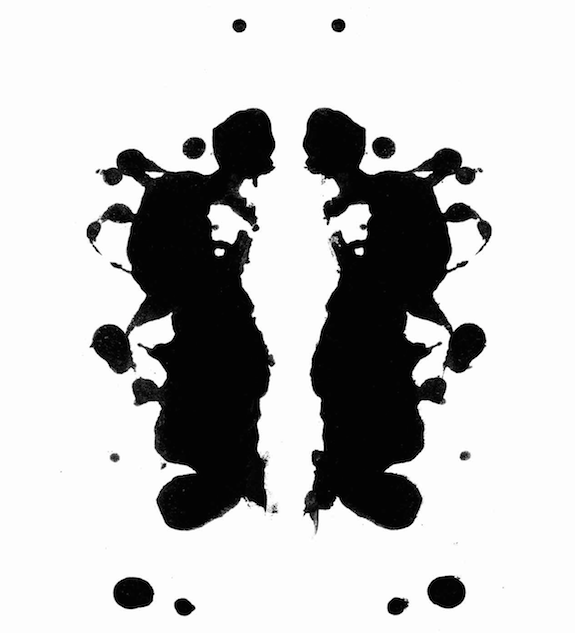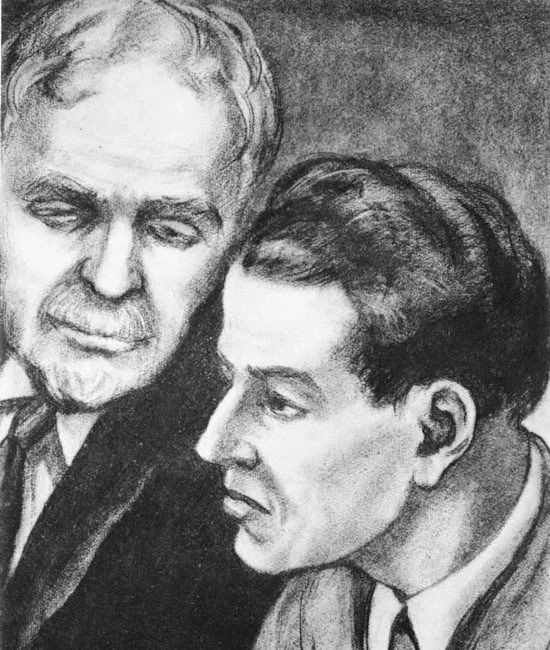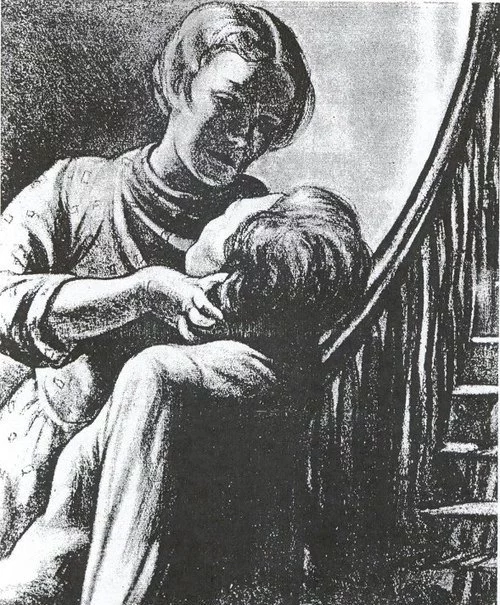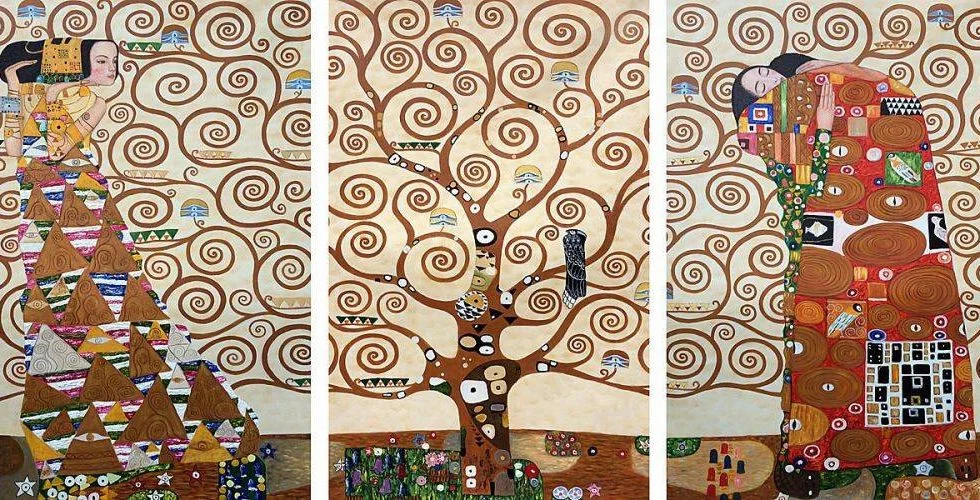Self-Knowledge • Know Yourself
Self-Knowledge Quiz
Though we spend an inordinate amount of time with ourselves, strangely, it’s remarkably hard to develop a proper understanding of how we operate: what we want, how we feel and why we react as we do. This lack of self-knowledge can be acutely dangerous. It makes us get into the wrong relationships, pick unsatisfactory jobs and spend money unwisely. No wonder Socrates summed up all the counsel of philosophy in just two words: ‘Know Yourself’. These questions/thoughts below are designed to assist us in gaining self-knowledge; putting ideas and questions to us that bring out patterns of thought and action that we normally miss. They should spare us time – and help us make more accurate choices.
Who are you?
The mind goes blank. The question feels so vast as to be irritating. We can’t easily see inside; we need psychological mirrors. The best mirrors are clever people (psychotherapists ideally) and when these are lacking, good questions. And a pen and paper to trap our thoughts, which can be as furtive as shy deer.
What is the meaning of life? What is love? Who am I?
These questions have a bad reputation not because they aren’t valid, but because we don’t cut them up properly and they therefore remain unmanageable. The issue of who we are needs to be divided to be digestible. Not ‘Who am I?’ but ‘Who am I with work, with love, with friends, around children etc.?
What happened to you in your childhood?
The question sounds absurd, but unfortunately isn’t. Almost everything we are today is the result of patterns laid down in childhood that we have forgotten. Children are not constitutionally made to understand their own psychology. They can tell you about distant planets way before they have any grasp of their motives or emotions. The first ten years were blind. We now have to go back and re-interpret them.
Isn’t Freud overrated, discredited and now just plain wrong?
In some key ways, yes; but in the basic idea that much of who we are is unconscious and that our childhoods heavily determine our choice of partners, our sexual tastes and our consciences – all this remains, unfortunately, painfully accurate. We have no real option but to grapple with the tricky material.
What does this make you think of?
It’s taken from a ‘projection test’ devised by the psychologist Hermann Rorschach. The idea is to show you something ambiguous – and then let your imagination fill in the ambiguity in ways that releases some of your repressed fears, hopes and desires. Latently aggressive people will see aggression, the sexual will see a vagina, you will see…
At heart, men are really…
When you get to know them, women are…
A favourite technique of psychologists is the unfinished sentence which invites you to complete it without thinking too much – so that we’ll engage our unconscious minds and discover some important attitudes that we normally repress. Knowing yourself involves being very unfrightened about stuff. We’re all extremely strange; and that’s fine.
Draw your nuclear family on a sheet of A4; putting in parents + siblings + house + a sun + a tree.
This is suggestive – not science:
– who you draw yourself next to is who you are closest to.
– who’ve you put furthest away is emotionally most distant.
– the size you have drawn yourself is the size of your self-esteem.
– the house is an extension of yourself: it is the ego. Is it in good shape? Optimistic? Ordered?
– Windows imply your degree of communication. Does your house have a door?
Have you ever had an incestuous thought?
Almost certainly. And that’s OK. In general, we suffer because a little too much of how we feel is shut away in the unconscious – when we would benefit from a closer grasp on what is actually going on in us. Our repression makes us sick. The default balance between conscious and unconscious tends to be wrong. We need to make heroic efforts to correct the imbalance and bring more of our lives into the conscious realm.
i: Are you feeling broadly optimistic about humanity and the future of the planet?
ii: Did you sleep well last night?
We tend to resist making any connection between the two questions, attributing all our ‘higher’ thoughts and attitudes to disinterested rational calculation. But we should accept the extent to which our thoughts are governed by physical forces: how we slept, what we ate, whether we’ve had a cuddle… We are – in this sense, despite our big brains – not so far from the babies we once were. That, too, is part of self-knowledge.
What do you blame your parents for?
Why do you think they were the way they were?
What were the pressures and difficulties they were under?
What might a good friend of your parents say?
Parents have to take a huge share of the blame, of course. But blame can get in the way of a better understanding of things. Parents were themselves subjects to parents and psyches they didn’t fully control. What do we start to learn and feel when we begin to think of our parents as – strangely – also themselves victims?
Let’s imagine you believe you are straight. Have you ever wanted to touch the sexual organs of someone your own gender?
Sigmund Freud’s great insight was that many things remain unconscious because of our own squeamishness, or as he put it ‘resistance’. The unconscious contains desires and feelings that deeply challenge a more comfortable vision of ourselves. But the price of not facing up to them is anxiety and neurosis. We should make peace with our glorious oddities and contradictions.
In love, what’s your type?
The people we tend to go for may be attractive to us not only for some very nice reasons (they’re friendly, are into politics or love sports) but also because they bring with them some special kind of trouble or difficulty to which we are especially prone. Most of us are involved in the compulsion to repeat certain sorts of suffering in our personal lives, normally based on the sufferings of childhood.
In what way is your partner quite annoying?
We shouldn’t simply blame the other person for their faults, perhaps their distance or irritability. We should recognise that we were positively once attracted to such ‘faults’ – because we’re seeking to recreate a pattern of non-fulfilment we knew in childhood. We generally search in relationships not for what is going to be most pleasurable but what will feel most familiar. Grasping the nature of this dynamic helps us to feel compassion for ourselves and forgiveness for the partner: after all, how could they have known that we wanted them in part because they would frustrate us?
List five ways in which you are, after all, quite difficult to live with?
A good partnership is not so much one between two healthy people (there aren’t many of these on the planet), it’s one between two demented people who have had the skill or luck to find a non-threatening conscious accommodation between their relative insanities, in large part because they have a good grasp of how they are difficult to live with.
If someone likes me a lot, I start to feel…
One option is that you might start to feel a bit sick – and try to persecute or run away from the enthusiastic party (why do they have such bad taste?). This is a characteristic response if you have issues with liking yourself – which around half of us do (largely because important people in our past weren’t that keen). Start to master your suspicion of yourself – so as not to hold it rabidly against others when they are keen.
i: The chief problems in my relationship with my mother were…
ii: The chief problems in my relationship with my father were…
They sound idiotically clichéd questions, but give them the time that their true seriousness actually demands. Spend, for example, one hour writing an answer to each one. If it’s going well, you should at some point feel like crying, at another point be extremely angry and perhaps at the end feel rather sad for everyone concerned.
What did you learn about relationships from your parents?
Humanity shows extraordinary technological progress in every generation – because we understand more and transmit our knowledge effectively. But we don’t make comparable progress emotionally because we’re simply not sufficiently aware of what detrimental behaviours we have picked up in childhood which we will – unless we are very self-aware – recreate in our adult years. Try to unpick yours before you play them out.
What slightly unhealthy things feel attractive in a partner? How might this relate to your opposite sex parent?
The psychoanalytic theory of repetition compulsion explains that we are all drawn to problematic things which we once experienced as children. It isn’t necessarily the case that we will directly repeat the trauma. Sometimes we will have a rigid need to run away from every aspect of it – but we are, in this respect, still connected to it.
Make a list of some people who really bug you.
Might you ever have experienced, however fleetingly, a sexual attraction of any kind towards any of them, an attraction that it’s hard to deal with for whatever reason (perhaps they have a partner, would reject you, or challenge your stated sexual orientation)? Irritation should always intrigue us about ourselves.
If you could consider yourself dispassionately, what might you warn a friend about if they were thinking of starting a relationship with you?
There’s a lot we can do once people are able to tell us what’s problematic about themselves. We don’t need people to be problem free – we need people to be able to explain where the problems are and how they operate.
Explain what you think is going on here?
We can’t know from the picture what is going on, because it is (intentionally) an entirely ambiguous image. Therefore, what you say this is about is coming from inside you. The way you elaborate, the kind of story you tell, indicates the contents of your inner world. Especially if you get insistent and very sure that this is what the picture really means. The picture is a test of what psychologists call ‘projection’.
What’s happening here?
Another ambiguous picture: There’s a lot potentially in it: a mother and her sick child, a wife killing her husband, a moment before a kiss. Write down what you think is going on. Then ask a friend to do likewise. Then discuss what aspects of your histories and personalities you have unwittingly drawn upon.
Fill in the blank box:
How we fill in the box tells us a lot about our characteristic responses to frustration. There tend to be three options: i: we get furious ii. we don’t get furious – because of a sense of inner shame which always prevents us from taking the high ground, even when we might deserve to. iii: we don’t get furious – because we feel that other people will respond volcanically and catastrophically if we make any complaint against them.
If I were to explain a bit more to people about how I felt about things, they would…
Our childhoods give us a sense of what is liable to happen when we reveal our deeper feelings to the world. Because we often got slammed down, we learnt to hide our ‘bad’ thoughts. On the surface, we are now compliant and friendly – but lots boils down below. To be mature, we should come to a basic realisation: the childhood world is not the world per se… It was just one very local influential bit we couldn’t get away from at the time. And, luckily, we are far more eloquent and resilient than when we were five. Dare to articulate feelings.
What are, or would be, my faults as a parent?
It’s very hard to imagine that one would have faults if (as is most likely) we’re deeply committed to being kind and loving parent. Yet we will have these faults nevertheless and they will be of two kinds: i: recreations of unhealthy patterns from one’s own childhood. ii. Excessive reactions to unhealthy patterns of one’s childhood which have created problematic dynamics of their own.
Name three sexual scenarios that especially excite you.
A sexual fantasy can be understood as an attempt to repair something that is problematic or broken for us in the world outside sex. So for example, we might like uniforms because people in uniforms otherwise seem to us so stern and forbidding. Or we want to be seen and heard in public, because a parent was excessively prudish. Sexual fantasies are little utopias that tell us about the troubled bits of our biographies – which we’re trying to put right.
What wayward sexual urges do you have?
The fear of being a pervert is strong in all of us. It’s part of what makes us so civilized. Yet self-knowledge means accepting that the unconscious is by nature entirely perverse, but that this is no reason for alarm. We have extremely strong censorship mechanisms which prevent 99.9% of us from ever acting upon our urges. In the meantime, we can afford to explore what is really at work in us, without fear of being destroyed by it.
When do you cry or want to cry (as an adult)?
A lot of adult tears are prompted not directly by pain, but by the sight of something uncommonly beautiful or sweet (a reconciliation between father and son; the sudden generosity of a tough person, a lovely garden). We are reminded of how badly we want the world to be a certain way – and of how sad we are that it so seldom is like this.
List five things that are the important to you in your life. How much of your time do you give to each of these?
There is a vast gap between what we say we value and what we actually end up doing. Paradoxically, we don’t pay most attention – or give most time and resources – to the things which, when pushed, we realise we care most about. We should, with a little more self-knowledge, narrow the gap.
What things do you often end up buying that don’t – on reflection, much of the time – actually satisfy you that much?
We’re surrounded by a vast system of influence – advertising – that tells us with immense skill what we should want. Unsurprisingly, we frequently and repeatedly end up buying stuff that doesn’t deliver: holidays we get bored and anxious in, clothes that we don’t ever wear, cars that don’t justify their enormous price tags. We should keep track not just of our expenditures but also of the satisfaction (on a scale of 1-10) that they brought us.
What are you trying to say through your clothes?
Clothes always constitute a uniform. They signal an idea of who we think we are and what group we see ourselves as belonging to. But our way of dressing might also carry important information about certain of our anxieties. What are we trying to protect ourselves from through our clothes?
Name three works of art (music, literature and visual art/architecture) that mean a lot to you.
We often love in art what we don’t have enough of in our lives. Our ‘taste’ is an indication of an area of need. For example, we love calm pictures because we are anxious or carefree music because we feel a bit trapped. Taste tells us not only who we are, but what we want to be more like.
What do you most regret so far?
We have so many regrets because we have to make so many big decisions in our lives before we can have anything like adequate knowledge: for example, around who to get married to, where to live, what kind of career path to follow. We’re driving blind, through no fault of our own. At parties, we should go around exchanging information on our regrets. We’d feel a lot less lonely.
What are you a little addicted to? Porn, alcohol, shopping, arguing…
An addiction shouldn’t be narrowly defined in terms of a particular substance: it’s something we feel a powerful need for because some aspect of the rest of our lives is pretty challenging. We should therefore stop dwelling on the addictive thing itself and focus instead on the sadness or anxiety that is fuelling our dependence on it. You aren’t a bad person, you’re just suffering in a way that’s not currently being addressed.
List three things about a person close to you that annoy you (like humming, doing the wrong thing with the toilet seat, being late…)
Little things upset us because they’re connected to big things; they hit against major psychological investments we’ve made in ideas around punctuality, privacy or organisation… Ideally, we’d realise what the big things were, defend them calmly and rationally, and remain relatively charitable toward the little things that people did to unwittingly evoke them.
What negative character flaws do you fear – in your worst nightmares – that other people have spotted about you?
Almost certainly, these flaws are on everyone’s radar already. Other people know more about us after five minutes than we tend to know after decades – because their knowledge isn’t inhibited by squeamishness. Honesty has no cost for them. Rather than hope no one can see your flaws, assume everyone spotted them long ago – and deal with the prospect by behaving with intelligent modest humour around them.
Rank in order of importance for you in your career: Money, Status, Creativity, Social Impact, Colleagues.
Our professional aspirations are subject to three forces: i. our parents’ hopes ii. the expectations of the world iii. what we feel like doing. The third is the most likely to suffer and the first two to triumph. It can be many decades into a career before we can acknowledge the horrific fact that we might essentially be working to please a (perhaps now dead) parent or (a largely) indifferent world. It is probably not too late.
If I knew I couldn’t fail, in my professional life, I’d try to…
We are often so scared of being humiliated by the gap between our aspirations and our reality that we don’t even dare to voice any aspiration – thereby conclusively ensuring that it can never come true. We owe it to ourselves to state what we deep down feel we could do and be – even if it never comes right.
What sort of things have made you envious recently?
We’re taught to be appalled by envy and never to feel it. But the things and people we envy in fact provide us with a very important map of our desires – which can teach us vital clues about ourselves. Keep a diary of envious feelings; and allow an autobiography of your future to emerge from it.
In your worst fears, what might your colleagues at work be criticising you for behind your back?
There is no point being squeamish here. Your fears are correct. Anything you might suspect others might think is already a reality. The point isn’t to escape such imagined gossip but to take gracious measures to deal with its almost-certain existence.
‘Poor people are essentially to blame for being poor.’ ‘Successful people aren’t primarily talented; they’re just lucky.’
How you approach these two statements is at the heart of all your political views, which start not with a high-flow intellectual analysis of the current merits of the right and the left, but with an emotional predisposition, created in childhood, connected up with ideas of agency and merit.
If I was a kind of weather, I’d be…
If I was a piece of furniture, I’d be…
If I was a make of car, I’d be…
If I was a piece of music, I’d be…
If I was a kind of food, I’d be…
If I was an animal, I’d be…
If I was a kind of font, I’d be…
Because the self is nebulous and shapeless, we can sometimes best grasp key bits of our identities via metaphors and analogies. The animal one can be particularly revealing.
List the (now guilt-inducing) occasions when you were especially mean to certain people.
Reinterpret the meanness as stemming not from evil but from anxiety. What were you worried about? How might it have changed things to have shared the worry? In future, try to reveal to others that you are feeling worried – rather than acting out the symptomatic meanness.
Someone has annoyed you. What do you say?
a) You are so annoying when… b) You make me feel annoyed when…
Psychologists love the second kind of phrasing; they tell us that it’s at the heart of good communication. Describing the impact others have on you rather than declaring them to be this or that in absolute terms means that people around us get less defensive – and are more likely to listen. Self-knowledge means recognising what belongs to you and what belongs to others.
Which better describes you:
a) When my partner disappoints me, I go cold, tend to withdraw and like to be alone…
b) When my partner disappoints me, I feel panicked and explode into rage with them…
These are two of the most common and not entirely healthy responses to hurt in love. Psychologists describe the first one as a symptom of ‘avoidant attachment’, the second of ‘anxious attachment.’ The healthier third option is to explain that we are hurt with calm resilience and a lack of vindictiveness. Only about 10 per cent of us manage that. It all has to do – of course – with how we were parented.
Write down the bad things about your relationship with your parents.
Now write down the bad things about your adult relationships.
Observe the links – and feel compassion, and even a certain dark humour at the psychological open prison we appear fated to inhabit.
What often impairs your decision making process? Lack of confidence, impatience, desire to please, over-excitement…
Our brains are faulty walnuts. Get ready that major decisions will manifest lots of errors, get to know your characteristic ones and take compensatory steps. Be very suspicious of how you reach important conclusions.
Without thinking at all, say the first thing that comes into your mind when you hear the following words:
– House
– Skirt
– Carrot
– Wool
– Lock
– Film
– Shoot
We get so good at not saying what we feel and think, we need to surprise our minds into telling us what they’re concerned with. Tease out your responses for indications of fears and desires.
Choose four adjective to describe yourself. Ask three good friends to do the same for you.
Compare and contrast the assessments. What did you miss? What can you learn?
Make a map of your failures, indicating the rough date they occurred. Write beside each one what you learnt.
You should be seeing patterns. The best we can do is rescue at least a little insight from our disasters.
What are you currently lying to certain people around you about?
It’s understandable. None of us live in totally welcoming environments. White lies are the necessary price for belonging to society. The desire for complete transparency is a naive, dangerous illusion.
If a really kind person wanted to praise me, they’d say…
If a really tough person assessed me, they’d say…
Learn to steer a good course between the two. Be the tough, generous friend to yourself.
Are you dominant or submissive sexually? And in the rest of life?
The standard line is that the second answer will be the inverse of the first, in other words, that sex is generally a compensation and relief for the tensions of ordinary existence.
What things would deeply alarm your loved ones if they knew them about you?
It’s OK to have a secret self. We are trying not to scare those we love.
If you could create your ideal pornography, what would it feature?
Many of us could do with being a bit less afraid of the contents of own minds.
What would you ideally like someone to feel compassionate towards you for? What would it beautiful if they could forgive?
In Christianity, which was dominant for a long time, God witnesses and forgives sinners. As we remain ‘sinners’, we need to recreate the basic function of witnessing and forgiveness, even if we have to do this by, and for, ourselves.
Career-wise, what would you like to achieve in one year, in five years, in ten years?
Have plans – or become subject to the less personally fulfilling plans of others…
What did you most enjoy doing as a child?
Do you get those feelings now?
A good career should be anchored around adult versions of the best childhood hobbies and sensations.
























































